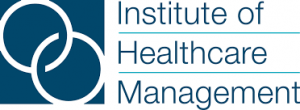The UK’s leading, independent, membership body for health and social care managers says politicians and policy makers must level with the public as one in five poll respondents say more than 15% of staff are now off sick or isolating
The Institute of Healthcare Management has called for honest and open communication about NHS capacity after a snapshot survey revealed the scale of sickness absence across the service.
The UK’s leading, independent, membership organisation for health and social care managers also said local leaders and communications teams should be allowed to level with the public about their situation, as almost two thirds of poll respondents reported ‘worse’ or ‘much worse’ absence levels than they would expect at this time of year.

IHM, chief executive, Jon Wilks
One in ten respondents reported sickness levels of 12-15% and one in five reported absences of more than 15%. Despite this, a majority said they were ‘managing well’ or finding things ‘tough, but we are coping.’
IHM, chief executive, Jon Wilks said this was a tribute to the planning that had gone into preparing the NHS to cope with the Covid-19 pandemic this winter, and a demonstration of the resourcefulness that health and care services have shown as the second wave has accelerated.
However, he said politicians and policy makers needed to be transparent about the situation, so the public could form realistic expectations about the NHS’ ability to open up new services and follow guidance intended to halt the spread of the disease.
“At the moment, politicians and policy makers are talking about opening additional services, such as Nightingale Hospitals and Nightingale vaccination centres,” Wilks said. “Although the picture varies across the country, our members are saying that the scale of sickness absence in the NHS right now makes that fanciful.
“Current services are managing, under enormous pressure, but without staff the idea of opening additional beds and services is a non-starter.
“We need openness and honesty about the position so workers and staff, patients and families have realistic expectations about the treatment available for Covid-19 and other conditions, and don’t lose faith in the service because the reality fails to match the headlines they are seeing.”
Wilks also urged politicians and national organisations to allow commissioners and trusts to communicate with local media, instead of relying on central messages. “If local managers could represent their position to local communities, we would have a much better understanding of what is happening across the service,” he said.
“That would almost certainly win a lot more support for the NHS and for the Covid-security measures that everybody needs to follow to halt the spread of this terrible pandemic.”
The online, snapshot survey was completed by 82 IHM members. It found 32% felt sickness absence was ‘same as we would expect at this time of year’ but 37% thought it was ‘worse’ and 25% thought it was ‘much worse’.
Asked to estimate how many staff were off sick, 30% said ‘up to 5%’, and 26% said 5-7%, 8-10%, or 10-12%. However, 12% said absence was running at 12-15% and 20% said it was ‘more than 15%’. 
Wilks pointed out that these figures exacerbated long-term shortages of staff. The NHS went into the Covid-19 crisis with 100,000 vacancies unfilled and short of more than 40,000 nurses.
Asked ‘to what extent staff absence is currently affecting your organisation’s ability to deliver services’, more than 22% of respondents said they were ‘managing well’ and 39% said it was ‘tough, but we are managing ok.’
However, 29% said ‘services are being affected, although we are not in crisis’ and 10% said ‘services are being seriously affected and we are in crisis.’
The survey was launched over New Year, so the majority of responses were submitted before this week’s big increase in cases, and the release of figures showing that the number of people who have died within 28 days of a positive Covid-test has passed 1,000 per day for the first time since April 2020.







Recent Comments